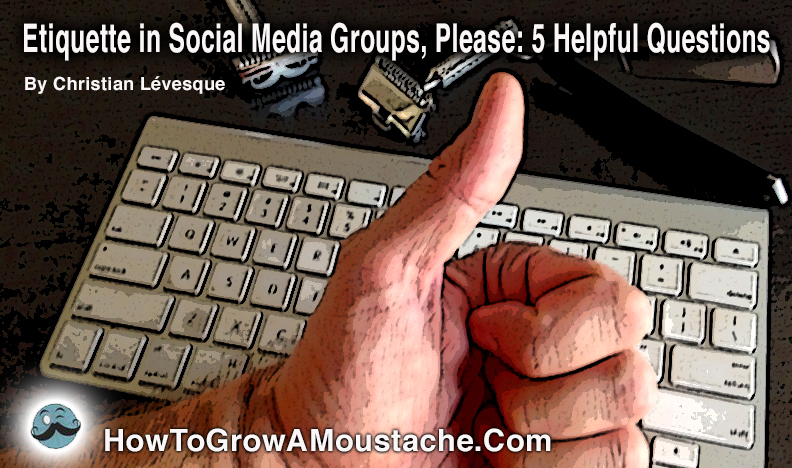
I apologize in advance if this blog post offends anyone; as a Canadian who’s perpetuating a stereotype, I’m apologizing gratuitously! Sowreeeee! Haha.
I’ve joined several shaving-related Facebook groups, Google communities, bulletin boards, and a couple of Reddit forums since falling into traditional wet shaving a year and a half ago. Over time, I’ve gravitated to those that suit my tastes. However, I still spend too much time in the virtual world and I’ve decided to wean myself of several groups.
One of the principal criteria in my purge is the behavior of its members, that is etiquette. I’m no prude, as I can be as crude as a rude dude! However, as a group of people who share an interest that purports to symbolize gentlemanly behavior, I’ve read quite a few immature or inappropriate posts & comments. Posts or comments that tease fellow members are fine with me as long as everyone is in on the joke. Administrators/Moderators often intervene when inappropriate statements are made, and other times, they don’t. It’s a difficult position, for sure. The collective personality of the members, the groups’ philosophy and the administrators’ level of involvement form the character of a group. Some groups are therefore more aggressive than others.
Sometimes a commenter is purposefully making nasty comments or trolling as it’s commonly known, which deserves to be completely ignored.
Other times, these commenters may simply be ignorant, and it’s nearly impossible to change someone’s mind. I realized 5 years ago that commenting on them doesn’t influence a different perspective. So, I mostly ignore them. Sometimes statements appear bizarre, but you learn that it’s simply contextual, which to me means it’s too cryptic to contribute to. A badly punctuated sentence can also miscommunicate a thought.
What makes social media statements more “meaningful” or “powerful” than comments made during a conversation is that they are published, therefore, can be visible forever, regardless of the comments being eventually deleted. Having it in digital form means that it can be accessed and read over again, maintaining its impact. There’s a permanency to written words.
In communicating, tone and body language count for a lot of the interpretation of words. In writing, those cues are non-existent, so it’s more important to be clear with the message. An example of this is humour, especially since it’s subjective, difficult to convey sarcasm and based on context. Often, it’s a good idea to go further and indicate the light-heartedness of the comments with a “Haha” or “lol”.
It’s unfortunate but too often, I read personal posts and comments that are ignorant. I choose to disregard them as it’s futile to try to bring about a positive conclusion. Pride, ingrained bias, or plain inability to think critically require more than social media words to influence.
It would be a better world if people would be more considerate and sensitive when publishing their thoughts. To this end, here’s a list of questions I ask myself before publishing on social media:
1. Should I publish my thought?
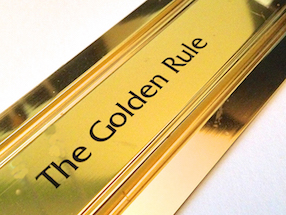 It should be relevant to the group’s theme and follow the golden rule of treating others as you would like to be treated.
It should be relevant to the group’s theme and follow the golden rule of treating others as you would like to be treated.
2. Does this thought contribute positively to the discussion?
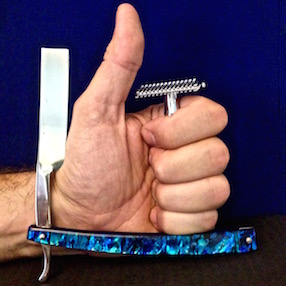 It should support/enlighten/answer the original post without putting people in a defensive perspective. When disagreeing, I find that asking questions is helpful.
It should support/enlighten/answer the original post without putting people in a defensive perspective. When disagreeing, I find that asking questions is helpful.
3. Is my thought backed up by experience/credible sources?
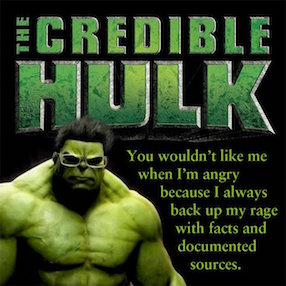 It should be witnessed or use facts to support assertions.
It should be witnessed or use facts to support assertions.
4. Am I concise?
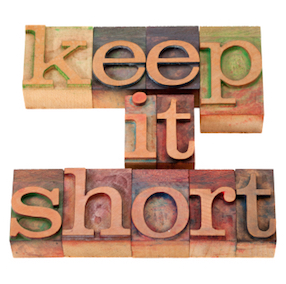 I struggle the most with this as I like to ensure the context is fully described and there is clarity in my idea.
I struggle the most with this as I like to ensure the context is fully described and there is clarity in my idea.
5. Are my spelling and my grammar correct?
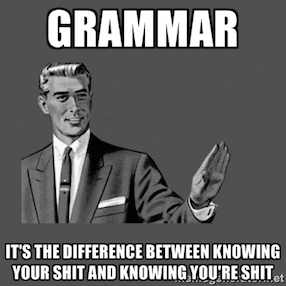 I review what I write to ensure the spell-checker did its job, or to correct its misunderstanding. Even with that, I shamelessly edit my posts to ensure proper spelling and grammar.
I review what I write to ensure the spell-checker did its job, or to correct its misunderstanding. Even with that, I shamelessly edit my posts to ensure proper spelling and grammar.
A final note: if a statement is deemed by someone, especially an administrator or a moderator to be inappropriate, that’s a red flag that it’s probably not following the rules of etiquette. Best to redress it quickly and move on in order to mitigate the situation.
I’m not perfect, but I find that when I answer these questions positively, my social media communication enriches my experience and that of others. It fulfills the notion of making the world a better place. That’s a good thing.
If you want to see good etiquette in action, I suggest you visit or join if you’re not yet a member, the How To Grow a Moustache G+ community. I find it to be the most helpful, friendliest, and fun group. Full disclosure: a day after I finished the final draft of this post, I became a Moderator at the How To Grow A Moustache G+ community, and will get to see the application of etiquette in social media from a different perspective. Now that’s some kind of extrasensory perception! Haha
Stay sharp!
 Christian Lévesque is a French-Canadian who’s been living in the Western US since 2007. He’s a stay-at-home dad to a charming five-year-old daughter and works part-time managing various projects at an independent film production company. Aside from being a traditional wet shaving enthusiast, he enjoys writing/collecting fountain pens, is a budding frag-head, and partakes in the occasional IPA “tasting”!
Christian Lévesque is a French-Canadian who’s been living in the Western US since 2007. He’s a stay-at-home dad to a charming five-year-old daughter and works part-time managing various projects at an independent film production company. Aside from being a traditional wet shaving enthusiast, he enjoys writing/collecting fountain pens, is a budding frag-head, and partakes in the occasional IPA “tasting”!

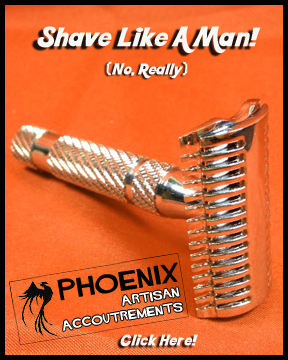
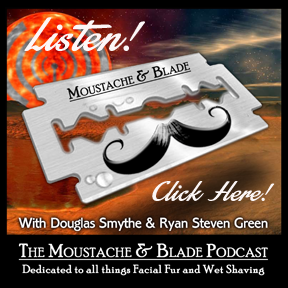


I have the world of respect for you cousin and I think very highly of you. Your article was great and I enjoyed my read. I do agree with what you say 🙂 … We as wet shavers have to be gentleman and to be gentlemen we have to behave as such. Jokes are ok but hurting people’s feelings is not… That is a rule of thumb for sure. Anyhow, phenomenal article and congrats on the modz!
Interesting